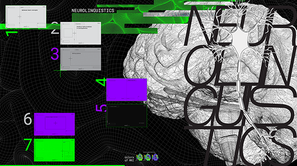
язык курса
длительность курса
понадобится для освоения
для зачета в своем вузе
за обучение
Dear learners, please note that only part of the materials is available for free. All course materials will be available after certification payment.
This course introduces the key principles and goals of modern neurolinguistics. Neurolinguistics is a science that incorporates methods and paradigms of linguistics and neuroscience.
This course discusses the main units and organizational principles of the human nervous system that underlie our language capacity. You will learn about the neurophysiological aspects of first and second language learning, discover clinical research in speech, reading and writing disorders, and also find out about speech disorders accompanying various psychiatric conditions. The course includes information on the history of neurolinguistics, modern techniques and methods of neurolinguistic research, and also provides detailed examples of several recent studies in the field.
None
Distance-learning. The course is organized on the principle of transferring the pedagogical experience of SPbU teachers through the use of modern innovative technologies, which include video lectures accompanied by texts, explanations, links, assignments, tests, as well as receiving feedback from the course authors.
This course may be of interest to bachelors, masters and graduate students of higher educational institutions, as well as to all those who are interested in the designated topic. The course will help potential employees to receive evidence-based information that gives a competitive advantage in their own employment.
A prerequisite for preparing for this course is an introductory course in linguistics or neurophysiology. This course is for undergraduate students.
The outline of the course:
1. Introduction. Language and the brain
Module 1 introduces you to the main ideas and history of neurolinguistics. In this module you will learn how the human brain is organized and which cortical areas provide the basis for our language capacity. It also touches upon neuroevolution and the differences between the human brain and the brains of other mammals.
2. Modern methods of neurolinguistic research, part I
In Module 2 you will learn about modern methods and techniques of neurolinguistic research, such as EEG, MEG, intracranial EEG, evoked and induced potentials.
3. Modern methods of neurolinguistic research, part II
Module 3 continues the discussion of neurolinguistic research methods, introducing you to the fMRI method. It also provides examples of three recent neurolinguistic studies, detailing every stage: how the experiments were planned and conducted, and how the data was analysed.
4. First and second language acquisition
Module 4 discusses how children learn their first and second languages. It also touches upon the differences in the ways monolinguals and bilinguals process linguistic information.
5. Clinical research in neurolinguistics, part I
Modules 5 and 6 deal with clinical research in neurolinguistics. In Module 5 you will learn about aphasia. We will discuss the underlying causes of this disorder, its main types and different approaches to their classification and assessment. You will also learn about linguistic models based on aphasia data.
6. Clinical research in neurolinguistics, part II
Module 6 continues the topic of clinical research in neurolinguistics. In this module you will learn about auditory hallucinations in schizophrenia, their causes and treatment. This module also discusses brain asymmetry with regards to language and dichotic listening as a means of studying brain asymmetry.
7. Speech and writing disorders
Module 7 is devoted to dyslexia and its comorbidities. This module will introduce you to four different approaches to dyslexia. You will also learn what longitudinal studies can tell us about dyslexia.
Successful completion of this course will enable the student to:
The discipline is involved in the formation of the universal competencies of students in the educational programs of the bachelor's / specialist's degree, as well as other competencies provided for by the educational program.
In this course you will learn:
You will be able:
You will master the following skills:
язык курса
длительность курса
понадобится для освоения
для зачета в своем вузе
за обучение

Доктор биологических наук, доктор филологических наук
Должность: директор Института когнитивных исследований СПбГУ

Доктор биологических наук
Должность: доцент кафедры проблем конвергенции естественных и гуманитарных наук СПбГУ

Доктор филологических наук, Ph.D.
Должность: доцент кафедры проблем конвергенции естественных и гуманитарных наук, старший научный сотрудник Лаборатории когнитивных исследований СПбГУ

Кандидат филологических наук
Должность: доцент кафедры русского языка как иностранного и методики его преподавания, старший научный сотрудник Лаборатории когнитивных исследований СПбГУ

Доктор педагогических наук
Должность: Профессор-адъюнкт отделения языков Хельсинкского университета

Должность: старший преподаватель кафедры проблем конвергенции естественных и гуманитарных наук, научный сотрудник Лаборатории когнитивных исследований СПбГУ

Ph.D.
Должность: Профессор школы языков, литературы и культур Колледжа искусств и гуманитарных наук Мэрилендского университета

Ph.D., доктор медицины
Должность: Доцент кафедры нейрохирургии Университета Айовы

Ph.D.
Должность: Профессор кафедры биологической и клинический психологии Университета Бергена

Ph.D.
Должность: Профессор кафедры биологической и клинической психологии Университета Бергена
По данному курсу возможно получение сертификата.
Стоимость прохождения процедур оценки результатов обучения с идентификацией личности - 3600 Р.